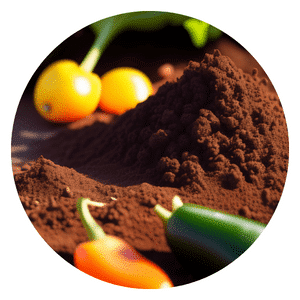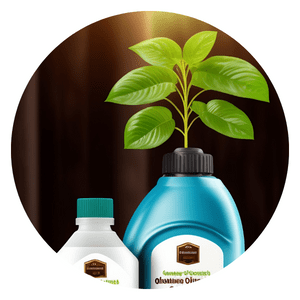How Many Squash Does A Single Plant Produce?
The number of squash produced by a single plant can vary depending on several factors, including the variety of squash, growing conditions, and care provided.
However, on average, a healthy and well-maintained squash plant can produce between 5 to 10 or more squash throughout its growing season.
Here are tips and methods to help maximize the squash yield from a single plant
Squash Produce Menu
Choose productive varieties
When it comes to growing squash, choosing the right varieties can significantly impact the yield.
Opting for productive varieties such as ‘Yellow Crookneck,’ ‘Zucchini,’ or ‘Butternut’ is a smart choice for those aiming for a bountiful harvest. These varieties are known for their high yields and can produce an abundance of delicious squash throughout the growing season.
‘Yellow Crookneck’ is a popular summer squash variety that not only produces numerous fruits but also has a distinctive flavor that many gardeners love.
Similarly, ‘Zucchini’ is another productive variety that can provide gardeners with an abundance of squash.
Its fast-growing nature ensures a continuous supply of fresh zucchinis throughout the season.
Lastly, ‘Butternut’ squash is well-loved for its sweet and nutty taste, making it a fantastic choice for culinary enthusiasts looking to stock up on this versatile vegetable.
By selecting these productive varieties, gardeners can maximize their harvest and enjoy plenty of homegrown squash.
Whether you prefer the vibrant yellow hue of ‘Yellow Crookneck,’ the classic green goodness of ‘Zucchini,’ or the rich flavor of ‘Butternut,’ these cultivars promise an impressive yield that will keep your kitchen well-stocked all season long.
Start with healthy seedlings
Starting with healthy seedlings is a crucial step in ensuring a successful and productive squash plant.
By beginning with strong and vigorous seedlings, you are setting yourself up for a bountiful harvest.
Healthy seedlings are less susceptible to diseases and pests, giving them a better chance of thriving in your garden.
One way to ensure healthy seedlings is by starting seeds indoors. This method allows you to control the growing conditions, providing optimal temperature, light, and moisture levels for the young plants.
Starting seeds indoors also gives you a head start on the growing season, as you can transplant the well-established seedlings into your garden once the weather is suitable.
When selecting seedlings or starting seeds indoors, it’s important to choose varieties that are known for their productivity and disease resistance.
Look for squash varieties that have been bred specifically for high yields and robust growth.
By beginning with healthy seedlings or starting seeds indoors, you are taking proactive steps towards maximizing your squash production potential.
Provide ample space
For bush varieties of squash, it is crucial to provide ample space between plants. This not only promotes good airflow but also prevents overcrowding, which can lead to disease and pest issues.
It is recommended to space bush varieties about 24-36 inches apart to allow enough room for the plants to spread out and grow without being cramped.
By providing sufficient spacing, each plant will have access to sunlight and nutrients, resulting in healthier growth and higher yields.
On the other hand, vining varieties of squash may require even more space due to their sprawling nature. These plants tend to send out long vines that can take up a considerable amount of space in the garden.
To ensure optimal growth and productivity, vining squash plants should be spaced adequately apart from one another.
Pay attention to the specific variety you are growing as some may require more or less spacing than others.
By giving vining squash plants enough room, you allow them to fully develop their vines and produce an abundant harvest.
Overall, regardless of the type of squash you are growing, providing ample spacing between plants is crucial for their overall health and productivity.
Good airflow helps prevent diseases such as powdery mildew from spreading among crowded plants while also ensuring proper pollination by allowing insects easy access.
Additionally, having enough room for each plant allows them to receive adequate sunlight and nutrients without competing with neighboring vegetation.
So remember when planning your squash garden: give your plants plenty of space!
In the garden's abundant grace, A single plant embraces space, Its vibrant leaves unfurled with pride, And blossoms reaching far and wide. Amidst the summer's golden haze, Nurtured by nature's gentle blaze, Countless squash, both big and small, Herald a harvest that enthralls all.
Chappy The Gardener
Full sun exposure
When it comes to growing squash, providing them with full sun exposure is crucial for their growth and productivity.
Squash plants thrive in warm climates and need plenty of sunlight to produce an abundant harvest.
Positioning your plants in a location that receives at least 6-8 hours of direct sunlight daily ensures they get the energy they need for optimal growth.
Sunlight provides the necessary warmth for the plants to photosynthesize and convert energy into sugars, which ultimately results in healthy foliage, flowers, and fruit development.
Without enough sunlight, squash plants may become weak and leggy, leading to poor fruit production. Insufficient sun exposure can also make the plant more susceptible to diseases and pests.
Therefore, it is essential to choose a sunny spot in your garden or provide adequate lighting if you are growing squash indoors or in containers.
By meeting their sun requirements consistently throughout their growing season, you will maximize your chances of reaping a bountiful harvest of delicious squash from each plant you cultivate.
Prepare fertile soil
When it comes to growing squash, having fertile soil is crucial for a bountiful harvest.
One way to prepare the soil is by adding organic matter, such as compost or well-rotted manure. These additions not only provide essential nutrients but also improve the overall fertility of the soil.
Compost, made from decomposed organic materials like kitchen scraps and yard waste, enriches the soil with beneficial microorganisms and releases nutrients slowly over time.
On the other hand, well-rotted manure adds vital nitrogen and other minerals that promote healthy plant growth.
Adding organic matter to the soil can significantly impact squash production. The nutrient-rich composition of compost or well-rotted manure helps supply essential elements necessary for vigorous plant development.
Improved soil fertility translates into healthier plants that are more resistant to diseases and pests.
Additionally, these amendments enhance moisture retention in sandy soils while improving drainage in heavy clay soils – both critical factors for successful squash cultivation.
In conclusion, preparing fertile soil by incorporating organic matter like compost or well-rotted manure sets the foundation for a productive squash garden. These additions not only provide essential nutrients but also enhance overall soil fertility and structure.
By ensuring that your plants have access to proper nutrition and optimal growing conditions, you can maximize your squash yield and enjoy a plentiful harvest season after season.
Adequate watering
Adequate watering is essential for the healthy growth and productivity of squash plants.
It is important to water consistently, ensuring that the soil remains evenly moist but not waterlogged. This can be achieved by providing a deep watering when necessary rather than frequent shallow watering.
Deep watering encourages the development of a strong root system, allowing the plant to efficiently absorb nutrients and moisture from the soil.
Furthermore, adequate watering helps prevent stress-induced fruit drop in squash plants.
When plants are not given enough water, they may undergo stress due to dehydration. This stress can lead to the premature dropping of fruits before they have had a chance to fully mature and ripen.
By maintaining an evenly moist soil environment through adequate watering practices, you can reduce the risk of fruit drop and ensure a higher yield of healthy and delicious squash.
Proper watering techniques play a crucial role in maximizing the productivity of squash plants.
Consistent watering that keeps the soil evenly moist without overwatering is key in promoting healthy root development and preventing stress-induced fruit drop.
Mulch to retain moisture
When it comes to growing squash, one of the key factors that determines their productivity is moisture retention in the soil.
By applying a layer of organic mulch around the base of the plants, you can significantly improve water conservation.
Mulch acts as a protective barrier, preventing excessive evaporation and reducing water runoff. This is especially crucial during hot summer months when water scarcity becomes a concern.
Additionally, by suppressing weeds through mulching, you ensure that these unwanted plants do not compete with your squash for essential nutrients and water.
Furthermore, mulch helps to maintain a more stable soil temperature around the squash plants.
During extreme weather conditions, such as heatwaves or sudden cold snaps, fluctuations in soil temperature can be detrimental to plant growth and development.
Organic mulch acts as an insulating layer that moderates temperature extremes and provides a more favorable environment for the roots of your squash plants. This leads to healthier and more productive crops overall.
In conclusion, using organic mulch like straw or wood chips is highly beneficial for retaining moisture in the soil when growing squash.
Its ability to conserve water reduces stress on the plants during dry spells and ensures optimal growth conditions throughout the season.
By suppressing weeds and maintaining consistent soil temperatures, mulching contributes to increased productivity and healthier squash plants in your garden or farm.
Fertilize regularly
When it comes to growing squash, fertilizing regularly is crucial for a bountiful harvest.
Applying a balanced organic fertilizer or compost tea throughout the growing season ensures that the plants receive all the necessary nutrients they need for optimal growth and fruit production.
Squash plants are known to be heavy feeders, meaning they require ample amounts of nutrients to produce high yields.
By providing regular fertilization, gardeners can ensure that their squash plants have access to essential minerals such as nitrogen, phosphorus, and potassium.
A lack of proper nutrition can result in stunted growth and low fruit production in squash plants. Therefore, it is recommended to fertilize every two weeks or according to the instructions on the specific fertilizer being used.
Organic options like compost tea not only provide nutrients but also contribute to soil health by improving its structure and increasing beneficial microbial activity. This helps create an ideal environment for squash plants to thrive and produce an abundant crop.
By following a regular fertilization schedule with organic options, gardeners can maximize the number of squashes produced by each plant.
The well-fed plants will develop strong root systems and robust foliage, which translates into more blooms and ultimately more fruits.
With proper care and nutrient supply through regular fertilization, a single squash plant has the potential to yield multiple squashes throughout its growing season.
Encourage pollination
Squash plants are known for their high yield of fruits, but did you know that they heavily rely on pollinators for successful fruit set?
Pollinators, such as bees and butterflies, play a crucial role in transferring pollen from the male flowers to the female flowers of squash plants.
Without proper pollination, squash plants may not produce as many fruits as expected.
One way to encourage pollination is by incorporating pollinator-friendly flowers into your garden. These flowers attract beneficial insects that act as natural pollinators.
Consider planting varieties such as marigolds, zinnias, or sunflowers nearby your squash plants to provide an enticing food source for them.
If you notice a lack of bees or other pollinators in your area or garden, another option is hand-pollinating the plants yourself. This can be done by using a small brush or cotton swab to transfer pollen from the male flower stamen to the female flower stigma.
Gently dabbing the brush onto each female flower will help ensure proper fertilization and increase fruit production.
By taking these steps to encourage pollination in your squash plants, you can maximize their productivity and enjoy a bountiful harvest of delicious homegrown vegetables.
Monitor and manage pests
One important aspect of growing squash is to monitor and manage pests effectively.
Regularly inspecting the plants for signs of pests is crucial in preventing any potential damage.
Pests can include insects like aphids, cucumber beetles, or squash bugs, as well as diseases such as powdery mildew or bacterial wilt.
If you notice any signs of pest infestation, it is essential to take appropriate measures promptly. Handpicking larger insects off the plants can be an effective method for immediate removal.
Additionally, using organic pest control methods can help prevent further damage without harming beneficial insects or pollinators.
Organic pest control options may involve using insecticidal soaps or neem oil sprays that target specific pests while being safe for the environment and the crop itself.
By actively monitoring and managing pests on your squash plants, you can protect their yield and ensure a healthy harvest at the end of the season.
Control diseases
Proper air circulation is crucial in controlling diseases that can affect squash plants.
Good airflow helps to prevent the build-up of humidity, which creates a favorable environment for fungal diseases such as powdery mildew and downy mildew.
To ensure sufficient air movement around your squash plants, make sure they are not overcrowded and have enough space between them. This will allow for better ventilation and reduce the risk of disease spread.
In addition to proper air circulation, it is important to avoid overhead watering when caring for squash plants.
Overhead watering can lead to excess moisture on the leaves and stems, creating an ideal breeding ground for fungi.
Instead, opt for drip irrigation or water directly at the base of the plant to minimize contact with foliage.
By reducing moisture on the plant surfaces, you can significantly decrease the likelihood of fungal infections.
Lastly, promptly removing any infected plant parts is essential in preventing diseases from spreading to healthy squash plants.
If you notice any signs of fungal diseases like wilting leaves, white powdery patches, or yellow spots on your squash plants, remove these affected parts immediately.
Use clean pruning shears or scissors to cut off infected leaves or stems, making sure not to touch healthy sections with contaminated tools.
Proper disposal of these infected materials away from your garden area will help contain the spread of disease and protect your other squash plants from infection.
Harvest at the right stage
The number of squash a single plant can produce largely depends on the variety and growing conditions.
However, with proper care and attention, a healthy squash plant can yield an impressive abundance of fruits throughout its growing season.
Harvesting at the right stage is crucial in maximizing the productivity of your squash plants.
When harvesting squash, it’s important to wait until they reach the desired size but not allow them to become overripe.
Overripe squash can be tough and less flavorful, so it’s best to harvest them when they are still firm and have a vibrant color.
Regularly picking mature fruits from the plant also helps stimulate continuous production by signaling to the plant that more fruits are needed.
By regularly monitoring your plants and harvesting at the appropriate stage, you can ensure a steady supply of fresh and delicious squashes from just one plant.
Remember to handle harvested squashes with care to avoid any damage that could affect their quality or shelf life.
With proper attention, you’ll be amazed at how productive a single squash plant can be!
In conclusion, the number of squash that a single plant can produce varies depending on several factors such as the type of squash, growing conditions, and care provided.
However, on average, a healthy squash plant can yield anywhere from 5 to 25 squash throughout its growing season. This is great news for gardeners who enjoy a bountiful harvest and want to make the most out of their plants.
By providing proper maintenance, regular watering, and paying attention to any signs of disease or pests, gardeners can maximize the potential yield of their squash plants.
So go ahead and plant some squash in your garden this year – you might be surprised by how many delicious vegetables you’ll be able to enjoy!
Click To Grow
Helps Us Grow – Share If You Like
















